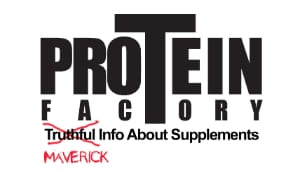It’s no secret that the average American diet lacks vital nutrients. The best source of many vitamins and other nutrients is fresh produce. However, most Americans do not eat enough fruits and vegetables each day. The shortfall in nutritional needs leads to chronic health problems.
The Role of Supplements, Vitamins, and Minerals
Experts agree the best way to get all the vital nutrients you need is to eat a balanced, whole foods-based diet. However, that doesn’t mean there isn’t a place for supplements in a healthy lifestyle. Supplements containing vitamins and minerals can help fill in gaps in your diet to ensure you are getting everything you need. So what is the difference between them?
Supplements
Supplements are substances you can take that contain vitamins, minerals, herbs, or other ingredients. Their general purpose is to add nutrients to your diet and lower your risk of health issues. All vitamins and minerals are supplements, but all supplements do not contain vitamins and minerals.
Vitamins and Minerals
While vitamins and minerals are a type of supplement, they differ from others. Vitamins and minerals are substances that occur naturally in our foods. Our bodies are unable to make these on their own so we have to eat the right foods to get what we need for optimal health.
Daily Vitamin and Mineral Needs
While your specific needs will vary depending on your gender, age, diet, and activity level, it is generally recommended that everyone consume certain vitamins and minerals every day. Please note, you should always discuss your dietary needs with your doctor before adding any vitamin or supplement to your daily routine.
Here are some of the vitamins and minerals your body needs every day:
- Vitamin D
- Magnesium
- Calcium
- Zinc
- Iron
- Folate
- Vitamin B-12
What Is Zinc?
You are probably familiar with most of the vitamins and minerals in the above list. However, the one many people don’t realize they need is zinc. You might think it is just the white stuff you spread on your nose to protect it from the sun. However, zinc is much more than that! It is critical for immune system support. Zinc also aids in healing and helps your digestive system.
Foods Containing Zinc
You can find zinc in the following foods:
- Meat
- Shellfish
- Legumes
- Seeds
- Nuts
- Dairy
- Eggs
- Whole Grains
However, if you have allergies or sensitivities to these foods, you will need to find alternative sources of zinc. Luckily, there are widely available supplements that contain zinc.
Benefits and Uses
Even though you do not need a lot of zinc, you need some for your body to function properly. The trace amounts that you need must come from regular consumption of foods or supplements containing zinc. Your body cannot store excess zinc so it needs to be consumed regularly.
Zinc is necessary for proper immune system functioning, thyroid function, blood clotting, wound healing, and healthy eye function. It can also possibly be used to treat skin problems, cold sores, and other issues.
Types of Zinc
If you don’t get enough zinc in your diet, your doctor may recommend you take a supplement. You will notice there are different types of zinc available. One question you will likely have is what is the difference between Chelated zinc vs zinc?
Chelated Zinc
Chelated zinc is more easily absorbed into your body than regular zinc. It contains a chelating agent attached to zinc. A chelating agent binds with zinc to make it more water-soluble. This is why it is more easily absorbed into your body than regular zinc supplements.
Stay Healthy
Many Americans are not eating as well as they should be. This leads to vitamin and mineral shortfalls that can lead to health problems. If this is you, you should talk to your doctor about what you are missing. They may recommend a change in diet or the addition of supplements to get your health back on track.

